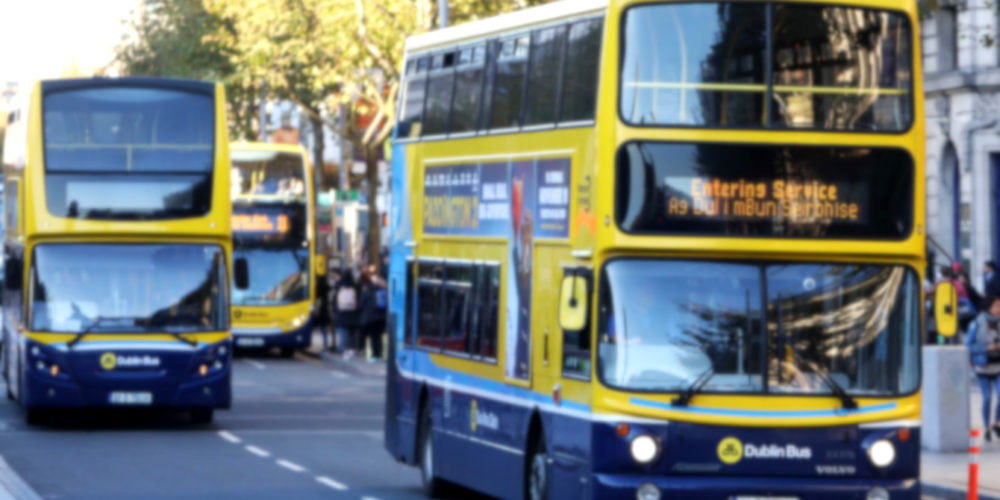The revised “Bus Connects” plan, with 22 per cent more buses and an investment of €2 billion, is to be welcomed. But workers and unions must be on their guard that Fine Gael don’t use this plan as a route to the privatisation of the public transport system.
As pointed out in Socialist Voice in August 2018, Bus Connects appears to have a much higher frequency from the suburbs into the city centre; but in fact the frequency is often reduced, or citizens would have to make a number of bus journeys to get to their destination.
Some of the local routes and orbital routes are very infrequent, and it would end up being quicker for people to walk to “connect” to the route on a high-frequency spine. This is in fact a case of “people connect” as a method of cutting costs and making it more profitable and more attractive to private transport companies.
The state has no intention of providing decent public services any more. Public transport serving far-flung housing estates is not part of the Government’s transport plan, any more than serving every small town on national routes is.
The Bus Connects plan in fact is designed to bring workers to work more quickly and efficiently—not as a transport service to facilitate the everyday needs of our citizens. These high-frequency spines are exactly the same as the Expressway routes used in the recent attempt to privatise Bus Éireann.
We welcome, and have consistently called for, extra public transport to be added to the transport system throughout the country.
Many on the left are being hoodwinked by this plan, not being familiar with the workings of Dublin Bus. This plan involves scrapping every existing bus route in Dublin and totally changing how the bus system operates today. To make these changes would require negotiating those changes with the existing Dublin Bus staff. This would not be impossible but would be extremely difficult and complex, as every single worker’s roster and working day would have to be turned on its head to facilitate the introduction of these changes.
Unreasonable and outrageous demands will be made on workers so as to provoke the collapse of negotiations, with the usual strategy of highlighting what the the establishment will class as “outdated practices” or “allowances.” We’ve seen this in every negotiation, from the Garda Síochána to civil servants and nurses.
There is nothing outdated about decent pay and conditions.
These are the methods that will be used to attempt to privatise the transport system in Dublin. The narrative will be created that bus workers and their unions are unwilling and refusing to accept the changes necessary to bring transport in Dublin “into the twenty-first century.” This narrative will be peddled by the national press, radio, television, and the main political parties—all the ideological weapons of the ruling class. It will also be used as an attempt to force trade union membership out of the transport sector.
It is all part of government strategy to deunionise, deregulate and privatise all services. Unfortunately some politicians, unions and groups on the left are falling straight into this trap and are promoting Bus Connects unreservedly. Of course the question needs to be asked, Are they confused, or are they trying to confuse the people?
“When the aristocracy come forward, the people fall backward; when the people come forward, the aristocracy, fearful of being left behind, insinuate themselves into our ranks and rise into timid leaders or treacherous auxiliaries.”
Theobald Wolfe Tone, “Manifesto to the Friends of Freedom in Ireland” (1791)
The aim of government in Ireland, be it Fine Gael or Fianna Fáil, and of many who claim to be on the left, is to support big business and capitalism, to disconnect the state from the provision of public services so as to privatise them and put them into the hands of their business associates, to create income streams for those who have the real power in Ireland. If proof of this were needed one has only to look at how the banks were bailed out.
If we are to reduce our toxic emissions, major changes are needed in transport. Capitalism is unable to make these changes so long as the obsession with profit persists. If governments were serious about improving public transport in the interest of the people and the environment it would serve every corner of the country, be extremely cheap or even free of charge, be of high quality, frequent, and have no toxic emissions, designed to serve the people’s needs, not just to get them to work.
This will get people out of cars, which would lead to a collapse in our carbon emissions. It would also speed up journey times, as there would be much less congestion. It would reduce stress in people’s lives, which is part of travel as it exists today.
So let us start planning public transport to serve our people, not as a way to provide profits for the owners of capital. And why stop with transport? The same paradigm should be used for health, education, and all that is necessary for our people to thrive.
We need a planned economy for the common good.






